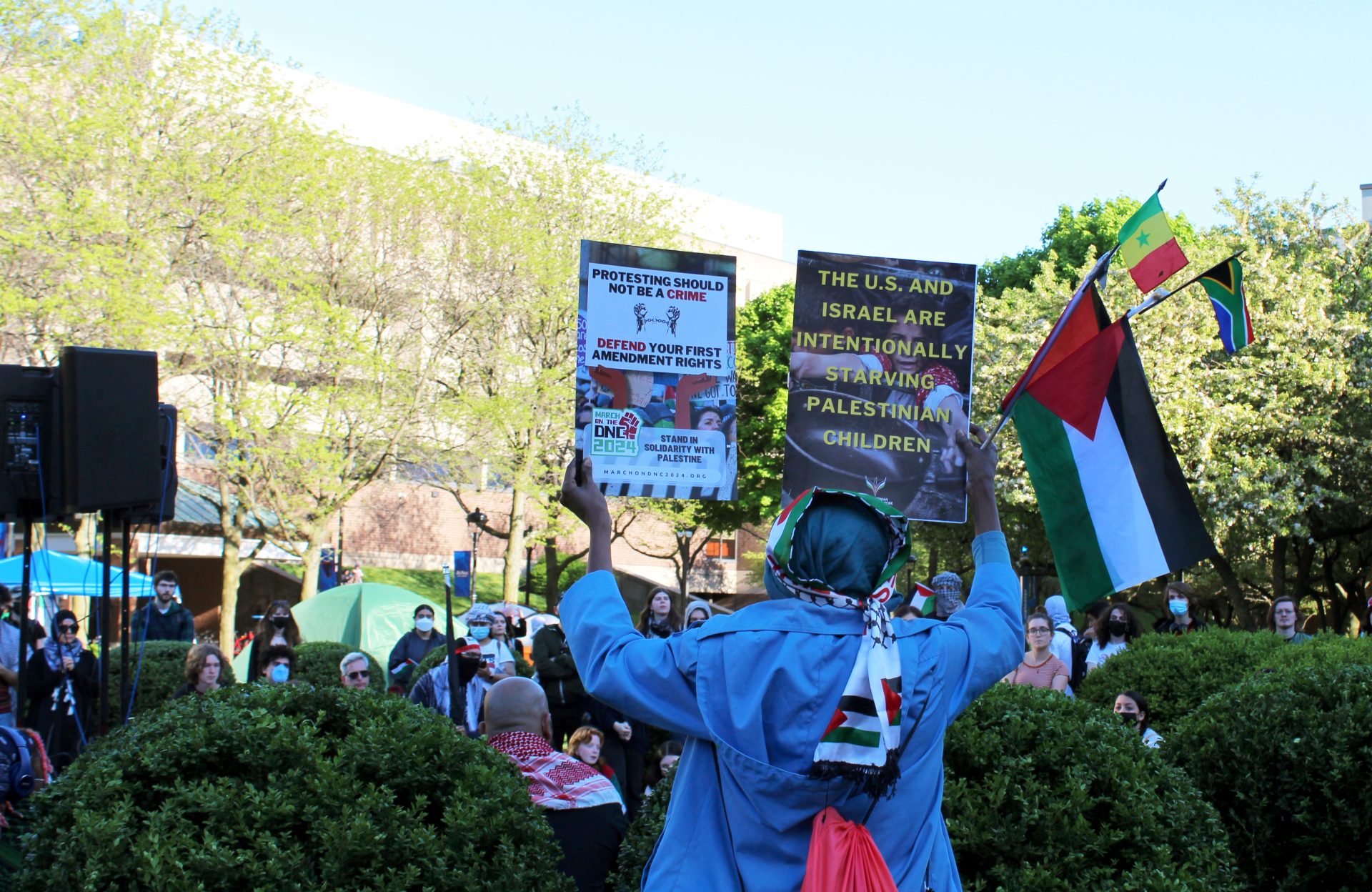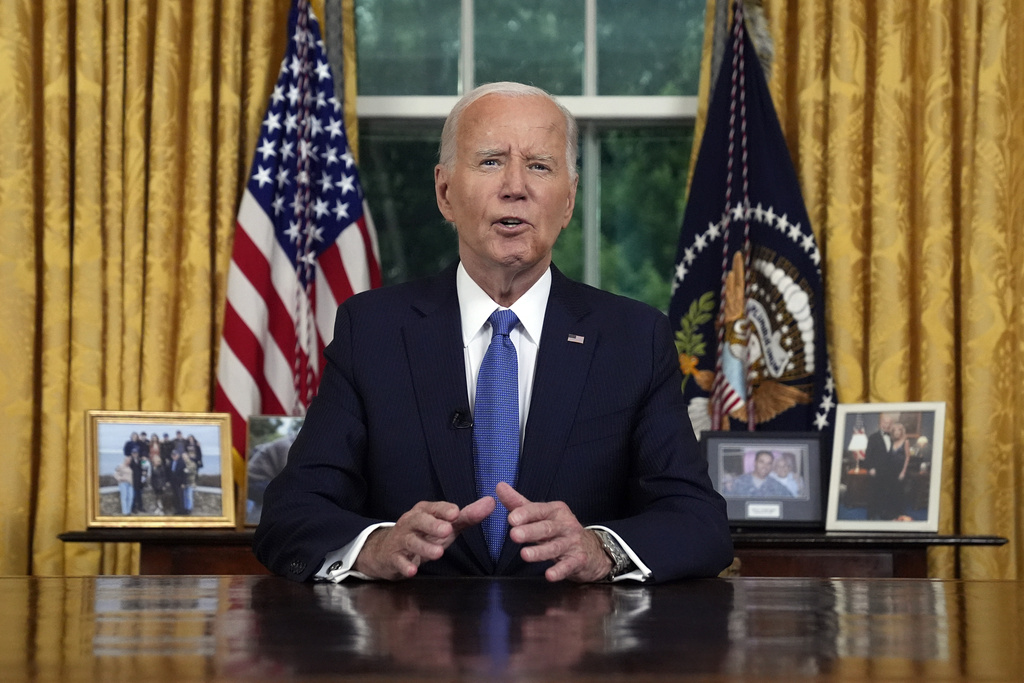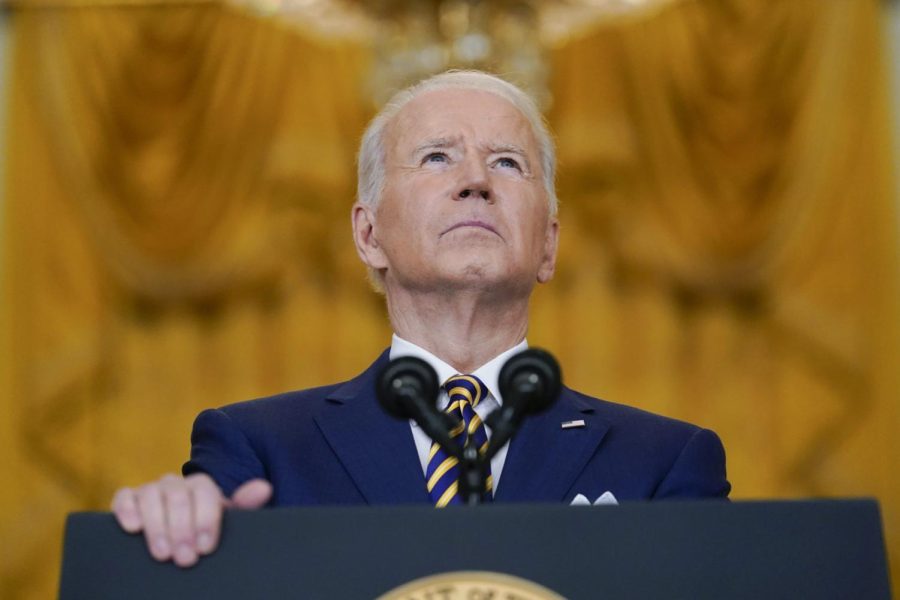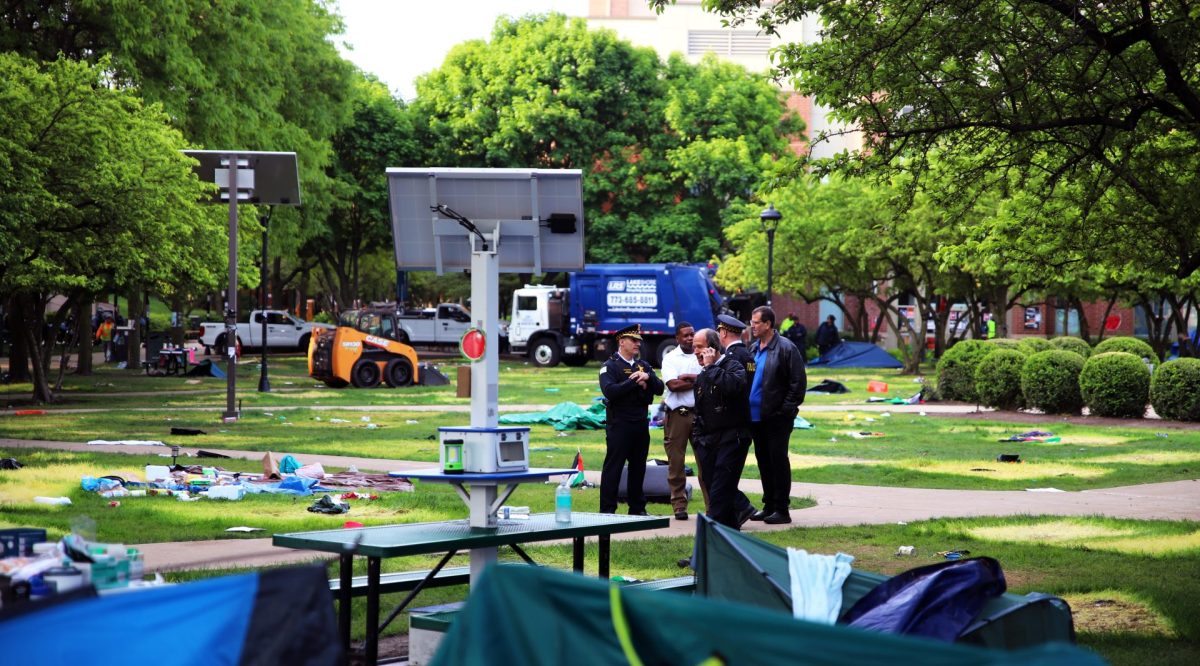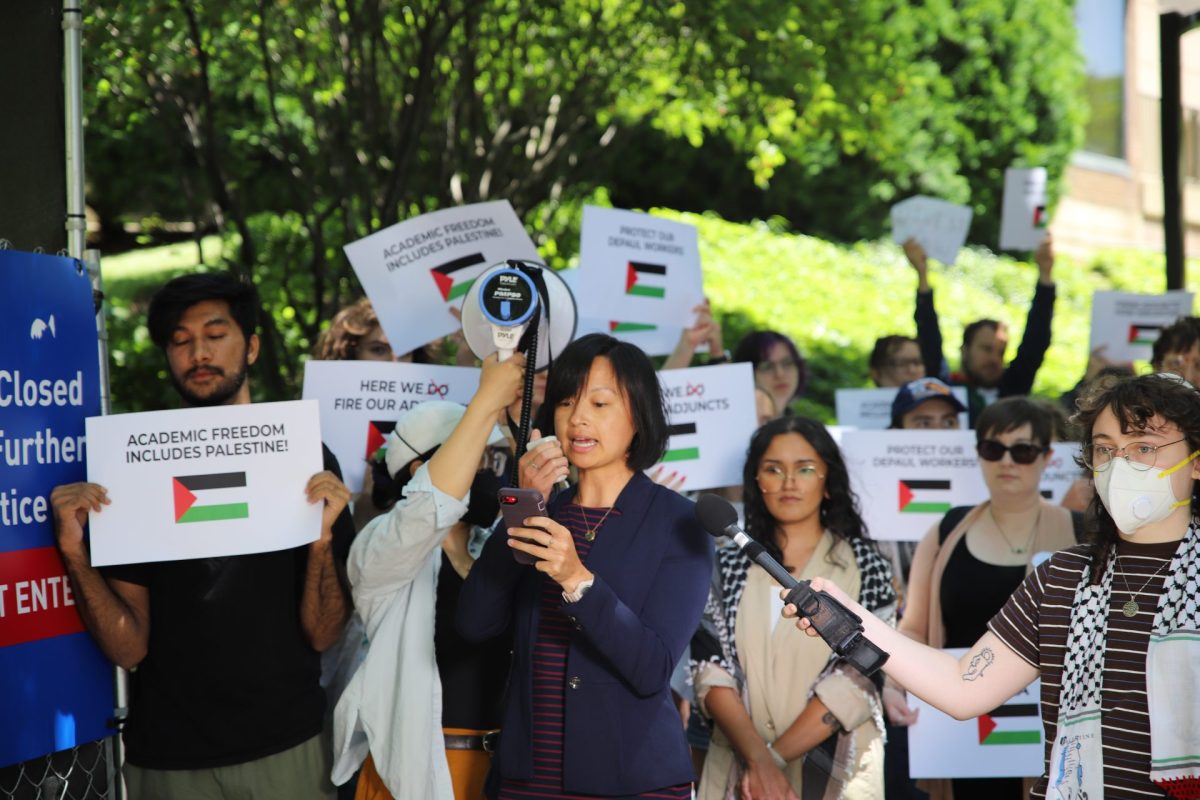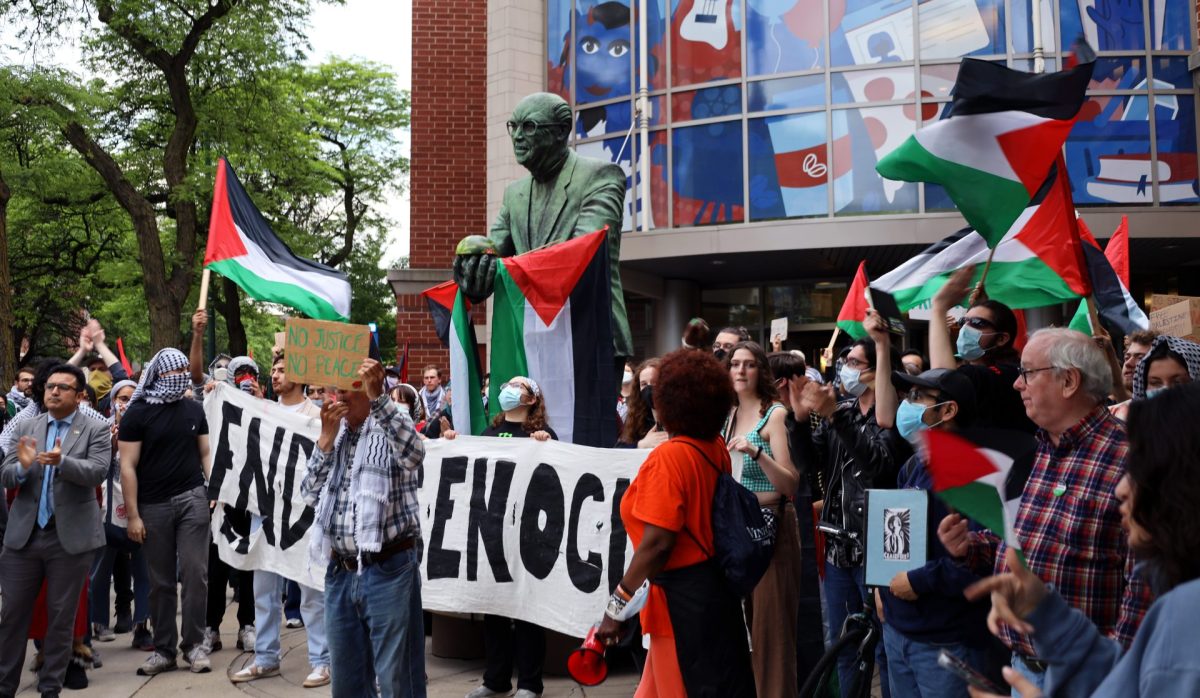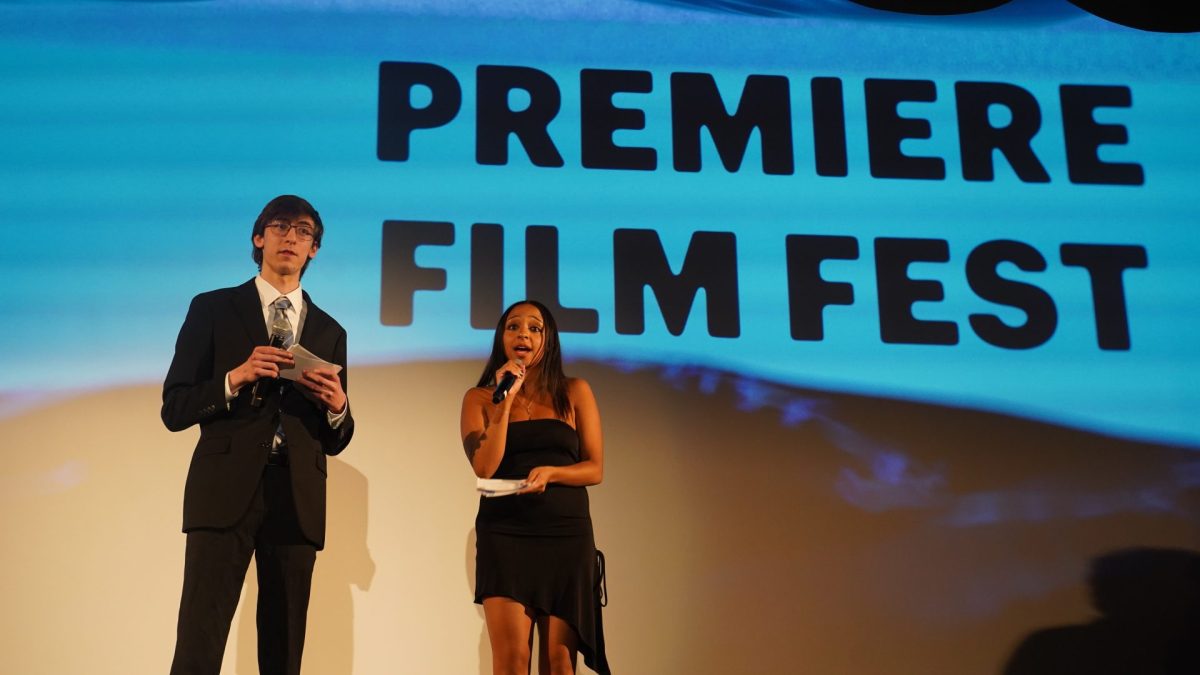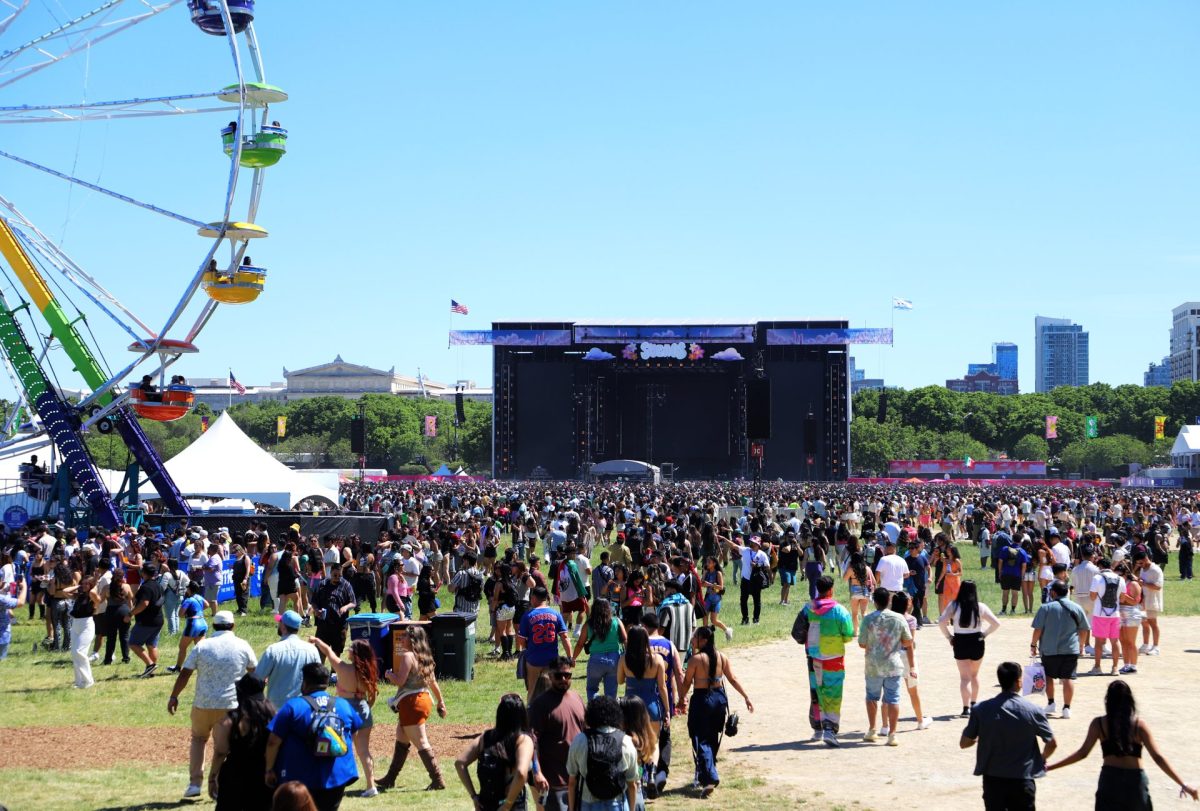Claire Tweedie assisted in reporting for this story.
For several days, the Quad has been a site teeming with chants, art, prayer, shared food and drink and speakers as students call for DePaul University to divest from Israel. With no resolution in sight, encampment organizers are determined to stay on the Quad until their demands are fulfilled.
“I do think they underestimate how long we plan to stay here,” DePaul sophomore Henna Ayesh, and media liaison for the pro-Palestinian encampment, told The DePaulia Thursday.
DePaul Divest Coalition and Students for Justice in Palestine, the groups behind the “Gaza Solidarity Encampment,” committed to staying on Quad until DePaul meets demands outlined in an April 30 Instagram post, which include:
- Acknowledge the ongoing genocide and “scholasticide” in Gaza.
- Disclose investments, budgets, and holdings up the university with the greater DePaul community.
- Divest from companies that advance Palestinian suffering and profit off the occupation.
- Join the city of Chicago in calling for a cease-fire.
- Eliminate study abroad trips to Israel that discriminate and normalize Israel’s occupation.
- Establish an ethical advisory team on investment responsibility that included students, faculty, and staff.
Since organizers first set up the encampment Tuesday morning, alumni, professors, community members and Chicago residents have visited the site to show support — and some to counter-protest or observe the scene. Pro-Palestinian demonstrators have lined the fence that separates the Quad from Fullerton Avenue with dozens of signs, with slogans such as “Money for education, not for the occupation” and “No more $$$ for war crimes! Divest!!! Divest!!!”
The move comes as students across the country protest their universities’ involvement in the Israel-Hamas war. Some students elsewhere have been arrested. Since mid-April, protesters have set up similar encampments at universities nationwide, including Columbia University and Harvard University. Students at other universities in Illinois, such as Northwestern University, the University of Chicago and the University of Illinois Urbana-Champaign, also have established encampments in recent days.
Since the war’s start, over 34,000 Palestinians have been killed and 77,704 wounded in the Israeli military offensive in the Gaza Strip since Oct. 7 last year, the Gaza health ministry said Tuesday. Hamas also continues to hold hostages taken from Israel in brutal attacks there, which set off this latest conflict.
Negotiations between organizers and DePaul administrators began Wednesday afternoon, according to a joint letter released Thursday afternoon by the student body president Parveen Mundi and DePaul Divest Coalition.
The student encampment negotiators claim that the engagement team — nine representatives from the Office of Academic Affairs, the Division of Mission and Ministry and the Office of Student Affairs — lacked “decision-making authority” from top administrators on critical demands like budget disclosure and divestment.
According to the statement, the university engagement team did not respond to encampment organizer demands — which include divestment from corporations affiliated with Israel and disclosure of DePaul’s investment portfolio — and instead “prioritized creating and distributing inaccurate correspondences filled with tired Vincentian platitudes.”
Encampment negotiators also said that “at no point did the engagement team inform the encampment leadership that the encampment was having a ‘moderate impact on university operations.’”
Lexa Murphy, the College of Communication dean and engagement team member, said her group’s goal is to create a channel of dialogue and a sense of transparency between protesters and administration.
“The overall charge is just to make sure that we have open lines of communication, that we have moments and opportunities for dialogue to really talk with and work with the student protesters,” Murphy told The DePaulia, Tuesday, April 30.
Ayesh, the media liaison, told The DePaulia Thursday night that its negotiations team will not meet with the university’s engagement team until at least one of their demands is met.
Many of the demands from the DePaul Divestment Coalition “could have been easily done that very same day,” citing calling for a cease-fire or acknowledging the Israel-Hamas war as a “genocide,” Ayesh said.
Ayesh said they have not heard anything from the university administration since DePaul Divestment Coalition posted an open letter on their Instagram account and throughout the encampment.
Organizations in the DePaul Divestment Coalition have been meeting with university administration since the beginning of the academic year, according to Ayesh. She said the demands presented now are the same ones from months ago.
“DePaul’s administration does not support us, but the student body and the community does,” Ayesh said.
Elsewhere at the university, opinions about the encampment differ.
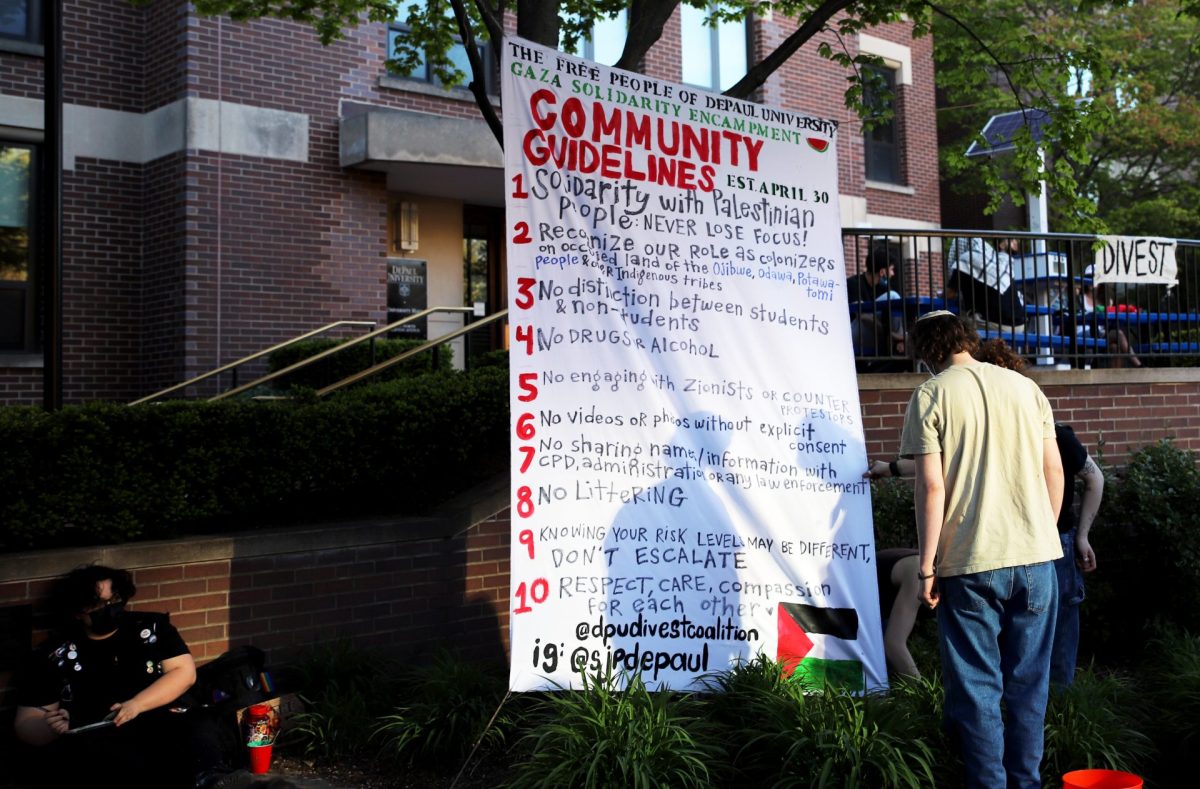
Craig Klugman, a Vincent De Paul Professor of Bioethics & Health Humanities, recounted instances where Jewish students reported harassment by members of the encampment.
“There are people calling them ‘dirty Jew, dirty pig,’” said Klugman, who is Jewish. “We have rules and regulations on campus to keep us safe and to keep us orderly, and my concern is, will those who have violated those regulations be held to account?”
Klugman opposes a police presence on campus and restrictions on students’ freedom of speech. However, he believes that acts and speech intended to harm others must be taken seriously.
“You don’t have a right to free speech without consequences,” he said. “I want our community to be safe, and I want us to be able to engage in productive scholarly dialogues, and yelling at each other and calling each other names does not permit that.”
In a Wednesday night email to the DePaul community, President Robert L. Manuel’s office reported receiving “multiple reports of signs and chants used by protesters that are intimidating and inciting violence.”
“Such speech stands in conflict with our guiding principles for speech and expression. We have raised our concerns with protesters and communicated a clear message that this be addressed and not allowed to continue,” the email said.
At the time of publication Saturday, May 4, Kristin Claes Mathews, DePaul’s senior director of strategic communications, said in a text that there were “no updates to share at this time.”
On the first day, more than 25 pro-Israel demonstrators gathered around the Seminary Avenue entrance to the Quad for a counter-protest.
Upon their arrival, the pro-Palestinian protesters linked arms across from demonstrators draped in Israeli flags before returning to the encampment.
DePaul freshman Lily Hecht, co-president of the Jewish student organization Hillel, said she and other Jewish students were concerned about antisemitic rhetoric on college campuses across the country.
“They’re just spreading a lot of hate,” Hecht said of pro-Palestinian protesters. “I mean, at Columbia, we’ve seen a lot of laws broken and a lot of extremely antisemitic rhetoric, like not even just anti-Zionist, but purely antisemitic.”
Nick, a Jewish Lincoln Park resident and member of the counter-protest, who asked that his last name not be used because he feared retaliation, believes that the events of Oct. 7 have been “whitewashed” and says that Israel’s proposals to Hamas have been “extremely generous.”
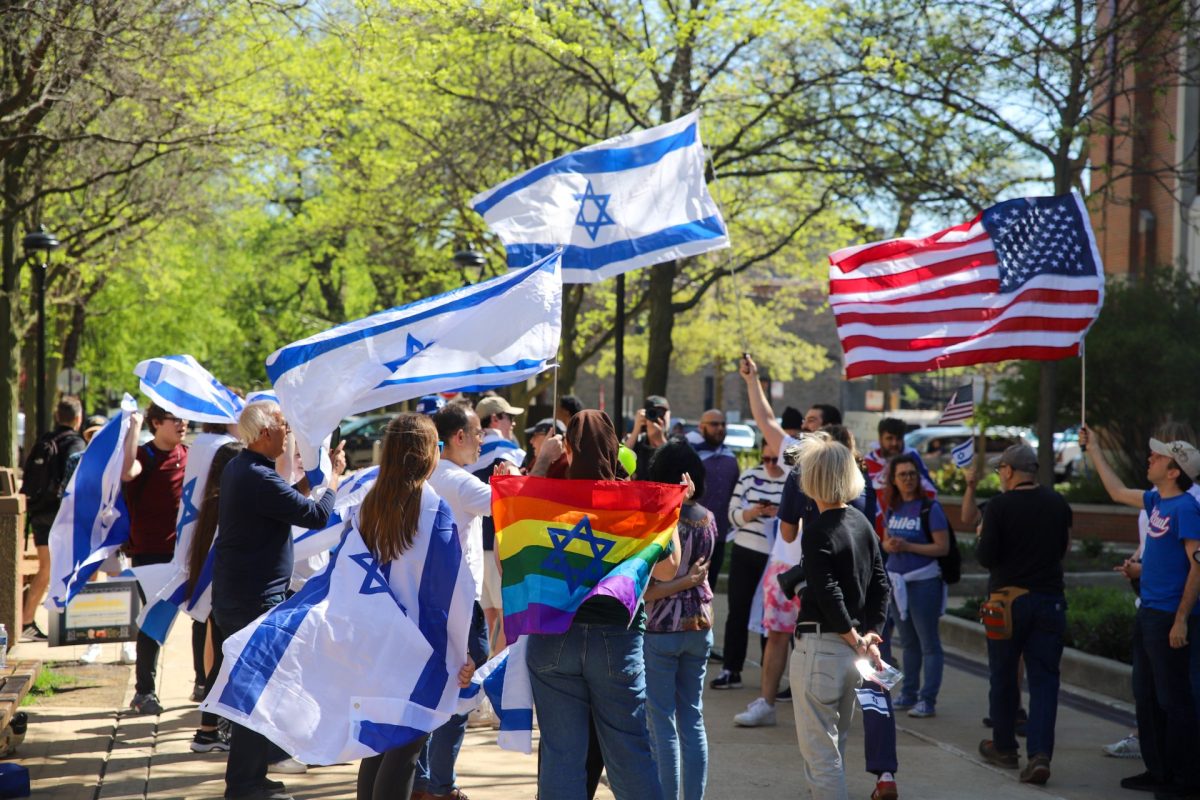
“There is no cease-fire because (Hamas) has not accepted it,” Nick said.
Since its formation last week, the encampment has rapidly expanded from a few tents to a self-sustaining complex. It now includes two portable toilets and food, medical and art tents. The camp offers protesters free meals and a daily agenda that includes scheduled prayer, guest speakers and performances from 10 a.m. to 10 p.m.
Many of its supplies and donations are provided by community members, former DePaul alumni and resources initially allotted for the Northwestern University encampment, which has since ended, Ayesh said.
Demonstrators have largely complied with the university’s request to observe the city’s noise ordinance, which prohibits amplified sound or music between 10 p.m. and 8 a.m. However, an email from the Office of the President to DePaul’s community Wednesday night stated that “the encampment is in violation of multiple university policies, which must be ultimately addressed.”
The email concluded by acknowledging the university’s commitment to maintaining an open dialogue between organizers and administrators.
Among the organizers’ six demands, the call for DePaul to divest from Israel is the most consistent with other encampments nationwide.
Divest — defined as the opposite of investing — refers to a university’s endowment, which is donated funds generally invested in stocks, bonds and other financial instruments to help the university earn money.
By demanding that DePaul divest from Israel, student protesters are urging the university to sell its investments in companies with ties to Israel.
At DePaul, the endowment sits at $817.8 million, according to a 2022 fiscal audit. It is lower than the national collegiate average of $1.2 billion.
The protest has remained peaceful so far, according to various faculty members, such as political science professor Katy Arnold and art school professor Laura Kina.
“I’m very, very impressed with the student organizers …. It’s really impressive how peaceful it is and the sense of community here,” Kina said.
While there have been no additional counter-protests, members of the Lincoln Park community have voiced concerns about the encampments.
Jeff, another Jewish resident of Lincoln Park and father of three school-aged children in the neighborhood, who also asked that his last name not be included out of fear, has been monitoring the encampment since it was established.
“I think the biggest concern for me is, as a parent of Jewish children, who walk to school who play outside who are in this area,” he said. “Yesterday when we came, there’s a there’s rage, there’s anger, there’s intimidation.”
Jeff said he wasn’t surprised by the encampment’s creation, noting similar setups at schools nationwide and in Illinois. However, he finds its proximity to his home “concerning.”
“Anybody has the right to free speech to protest,” he said. “My concern is for the safety of the community, our kids.”
Still, others who came to see the encampment were supportive.
Tom Pace, an Avondale resident, described the encampment as “inspiring” and said he feels validated in the many political and social beliefs he has held since childhood.
“You young people are fearless,” Pace said as he stopped at various tents around the encampment to give students fist-bumps in support of their cause.
So far, there has been no police presence on campus. Murphy, from DePaul’s administrative engagement team, told The DePaulia that the university intends to approach the encampment differently from other higher education institutions and has no intention of calling the Chicago Police Department on protesters.
“They’re not looking to bring in external forces or anything like that,” Murphy said. “Their goal is just to maintain open dialogue and a peaceful setting, and as long as it doesn’t interfere or pull away from the core operation at the university — meaning classes (and) the ability of all students to still get their right to education — then there’s no plan that I’m aware of to, to call in CPD or external forces.”
With no foreseeable end, organizers are determined to stay on the Quad until their demands are met.
“We have the supplies, we have teams and we have support from the community. We have enough to last us for a long time,” Ayesh, the encampment media liaison, said.
Coverage for this story is ongoing. Follow The DePaulia’s live updates from the encampment.
Related Stories:
— Live Updates: Encampment for divestment continues on DePaul Quad

